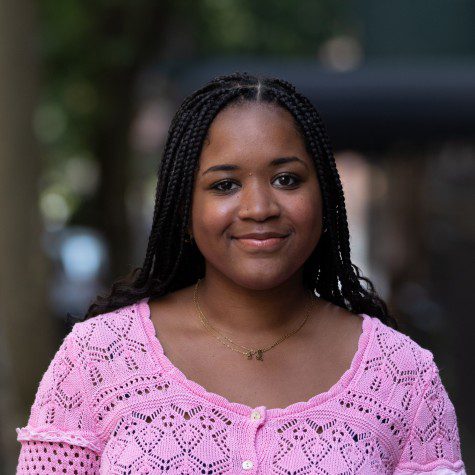A conversation with incoming NYU Silver dean Michael Lindsey
Michael Lindsey, an NYU professor of poverty studies, plans to apply his background in mental health to his new role.

NYU scholar Michael Lindsey will be taking over as the new dean of the Silver School of Social Work on July 1. (Image courtesy of NYU)
February 9, 2022
Michael Lindsey will take over as the new dean of the Silver School of Social Work starting July 1. Lindsey, the executive director of NYU’s McSilver Institute for Poverty Policy and Research, is an expert on child and adolescent mental health research and a scholar of generational poverty and inequality.
As the Silver dean, Lindsey hopes to incorporate artificial intelligence into the curriculum and partner with New York City social workers and agencies to broaden the experiences of students and faculty.
This interview has been edited for length and clarity.
WSN: In what ways do you believe your childhood, educational and work experiences have prepared you for this role?
Michael Lindsey: I grew up in the 1980s in Washington, D.C., during the time when our nation was struggling with an insurgence of drug activity related to the crack cocaine epidemic. I saw the devastation of what crack cocaine did in terms of the destruction of families, the violence and the whole nine. What became important then was to be committed to a sense of a mission, to want to overcome those circumstances and to get to a place like Morehouse College so that I could understand essentially why some of that was happening in my community.
Morehouse inspired me to go to graduate school to get my Ph.D. in social work and get advanced training in public health to really bring it all together. People early on in my life were self-medicating in the sense of trying to take care of their issues through alcohol or drug use. I figured that if we were to bring mental health services to those settings and try to dismantle the stigma related to mental illness and mental health treatment, folks would have a better opportunity to address the challenges.
Those experiences give me the fuel and the passion to want to see students have the best possible experience that they can have so they can go out into the world and make a difference.
WSN: How do you plan on applying your research during your time as dean?
ML: I’ve always wanted to do something about these issues, including addressing the social determinants of health that oftentimes we’ll find with people that are impacted by poverty.
I plan then to bring my knowledge around how to develop a strategy to address these large-scale, seemingly intractable issues. I want to bring that to the position of being a dean to help think through what kind of curriculum opportunities might there be to ensure that students are well equipped to go out into the world to be those agents of change.
WSN: What would you say your top priorities are as dean?
ML: Ensuring that students have the best possible experience in terms of their preparation to be social workers is critically important. When they graduate from the program, they should feel prepared to go into any community and any setting and do great social work.
A priority is to meet the needs of New York City and surrounding areas from a social work perspective. This city is in need of well-prepared social workers to step up to the plate in terms of helping to ensure that this city recovers successfully.
WSN: What was your reaction to being selected as dean?
ML: I felt humbled because this is not a job or responsibility to be taken lightly. You’re talking about preparing the next generation of folks who are going to really tackle the persistent challenges in our society that relate to those who are marginalized, who have been marginalized historically, or who are struggling with any sort of issue that requires a social worker to be involved.
I feel that sense of responsibility to assure them that what students experience, what faculty cultivate and create for them to experience, is top flight. Ultimately, social work has a critical role to play in our recovery process from COVID-19 — in the space of advocating for and in showing that matters of social justice are relevant and important to how we work with populations that have been historically marginalized.
WSN: As a Black man who has spent a large portion of his career helping Black adolescents in mental health, what does this appointment mean to you?
ML: A few years ago, I was appalled. I could not believe that I was living in the greatest country in the world, yet I saw a Black man crying for his mom and crying for this police officer to take his knee off his neck. I was appalled to hear the story of Ahmaud Arbery jogging through a community and being hunted down like he was wild game by vigilantes. This gives me perspective about the realities of our time and the fact that we still have a long way to go in terms of diversity, equity and inclusion.
I have had opportunities to work with folks in the context of a therapy encounter to help them process their pain associated with this. I now have the opportunity as the incoming dean to prioritize this in the context of how those things related to diversity, equity and inclusion are reflected in our curriculum and the processes by which we select students to come into our programs, recruit faculty and uphold these principles.
Contact Lauren Ashe at [email protected].



























































































































































